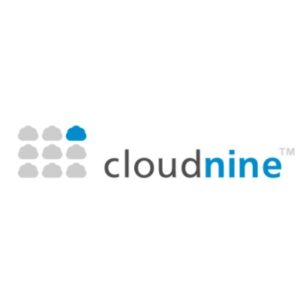As Blockchain Joins the Healthcare Profession, Are Legal Departments Prepared to Keep Up?: eDiscovery Trends
When we hear the word blockchain, most of us still think of Bitcoin, that mysterious new currency that seems to equally enthrall forward thinking investors and less-than-savory entrepreneurs who lurk around the darkest parts of the Dark Web. But blockchain technology is finding more and more practical uses, most recently in the healthcare industry.
In a recent Wall Street Journal Article, blockchain is presented as a low-cost, highly secure way to unify healthcare records, which to date has been a huge obstacle. As the article puts it, “In the current tangle of incompatible records systems that typifies U.S. health care, incorrect information can creep in when patient data gets re-entered multiple times by doctors’ offices, insurers and hospital staff. Big errors can seriously affect the quality of care that patients receive, small discrepancies can result in wrongful denials of insurance coverage, and errors of all types add to the system’s cost.”
In very simplified terms, Blockchain works like a giant Google Sheet: a single ledger that can be added to simultaneously by all users in the system, with each “transaction” creating an audit trail so that its data is nearly infallible. For healthcare records systems, this can put patients, insurers, and providers literally on the same page, providing secure and accurate information for all stakeholders across the board.
In January, Nashville-based Change Healthcare (a network of 800,000 physicians, 117,000 dentists and 60,000 pharmacies) introduced a blockchain system for processing insurance claims. The shared ledger of encrypted data gives providers a “single source of truth,” according to Emily Vaughn, blockchain product development director at Change Healthcare.
All parties can see the same information about a claim in real time, so that a patient or provider won’t have to call multiple parties to verify information. Each time data is changed, a record is shown on the digital ledger, identifying the responsible party. Any changes also require verification by each party involved, ensuring record’s accuracy.
Change Healthcare won’t reveal actual numbers about how much the new system (which processes roughly 50 million events daily) cuts costs, but the efficiencies, accuracy, and security will no doubt bring huge savings.
The question regarding the eDiscovery implications with this type of move are clear: How will this data be preserved, collected, and prepared for review? It’s not so much a question of a technical nature (though that will have to be answered by someone, but I’ll leave it to the software engineers to properly answer it). What I mean to say, is that anytime a new data source is introduced into the organization’s landscape, the question of preservation, collection, and production should already be on the minds of the legal department. Often, changes in a company’s technology infrastructure are driven by departments outside of legal: usually a combination of IT and business units looking for efficiency, security, and cost savings. Many times, large decisions will be made, leaving the legal team in the position of playing catch up when it comes to discovery should litigation arise.
So, even if your company isn’t moving to blockchain anytime in the near future, this story of what is happening in the healthcare space is important to consider, because, to quote the poet William Blake, “What is now real, was once only imagined.” And the potential uses for blockchain technology lately seems to be on everyone’s mind.
So, what do you think? How do you see the increased use of blockchain technology affecting eDiscovery? Please share any comments you might have or if you’d like to know more about a particular topic.

Sponsor: This blog is sponsored by CloudNine, which is a data and legal discovery technology company with proven expertise in simplifying and automating the discovery of data for audits, investigations, and litigation. Used by legal and business customers worldwide including more than 50 of the top 250 Am Law firms and many of the world’s leading corporations, CloudNine’s eDiscovery automation software and services help customers gain insight and intelligence on electronic data.
Disclaimer: The views represented herein are exclusively the views of the author, and do not necessarily represent the views held by CloudNine. eDiscovery Daily is made available by CloudNine solely for educational purposes to provide general information about general eDiscovery principles and not to provide specific legal advice applicable to any particular circumstance. eDiscovery Daily should not be used as a substitute for competent legal advice from a lawyer you have retained and who has agreed to represent you.




